All the history that's fit to print
With almost two centuries’ worth of journalism archives, Northwestern’s collections are “extra! extra!”
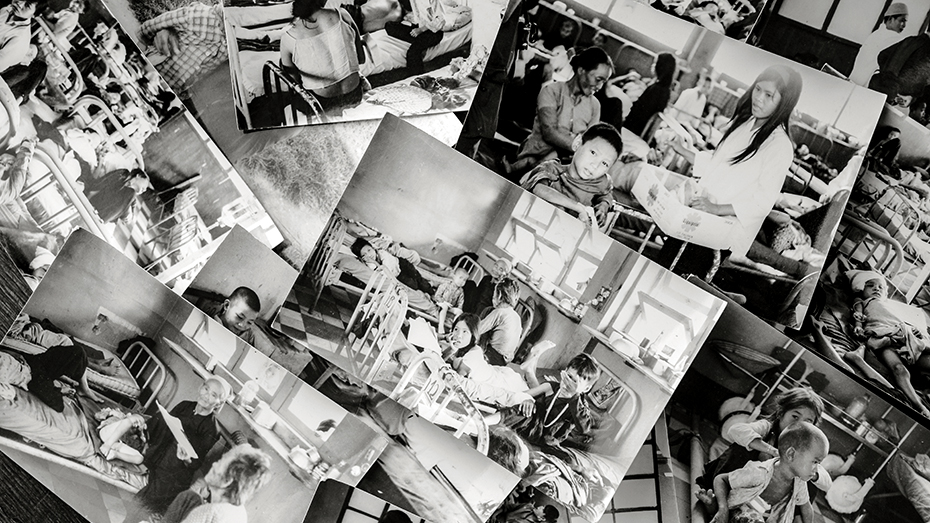
If journalism is considered the first draft of history, we have the first draft of the first draft.”
Photography by Jim Prisching
It stands to reason that a university with one of the world’s most storied journalism schools would also accumulate one of the most storied archives of journalism history.
For 103 years Northwestern’s Medill School of Journalism, Media, Integrated Marketing Communications has been molding the careers of news reporters in every medium. For almost as long, the Libraries have been preserving their stories as well as those of non-Medill journalists—whether via reporters’ notebooks, editors’ drafts, newspaper executives’ files, or influential faculty’s teaching notes.
Today those archives date back to the early 19th century, covering reportage of momentous national events and inflection points in the evolving news industry. According to University historian Kevin Leonard, anyone looking to tell the story of American journalism or to examine how our journalists have captured their times would do well to start with the Charles Deering McCormick Library of Special Collections and University Archives.
“If journalism is considered the first draft of history, we have the first draft of the first draft,” says Leonard, who has worked with University Archives since 1980. “When journalists have been careful in their work and their note-taking, they leave behind real-time documentation of local, national, and global events of significance.”
The backbone of the journalism-related holdings is also one of the newest arrivals: the Robert R. McCormick Papers, which arrived in 2020 as a gift from the Chicago Tribune Company, the Robert R. McCormick Foundation, and Nexstar Media Group. After the 1910 death of Chicago Tribune editor Robert Patterson, his nephew Robert McCormick joined the family business as editor and soon publisher. McCormick transformed the Midwestern newspaper into a media empire while espousing his staunch brand of mid-20th-century Republican values, especially nativism, isolationism, and anti–New Deal politics.
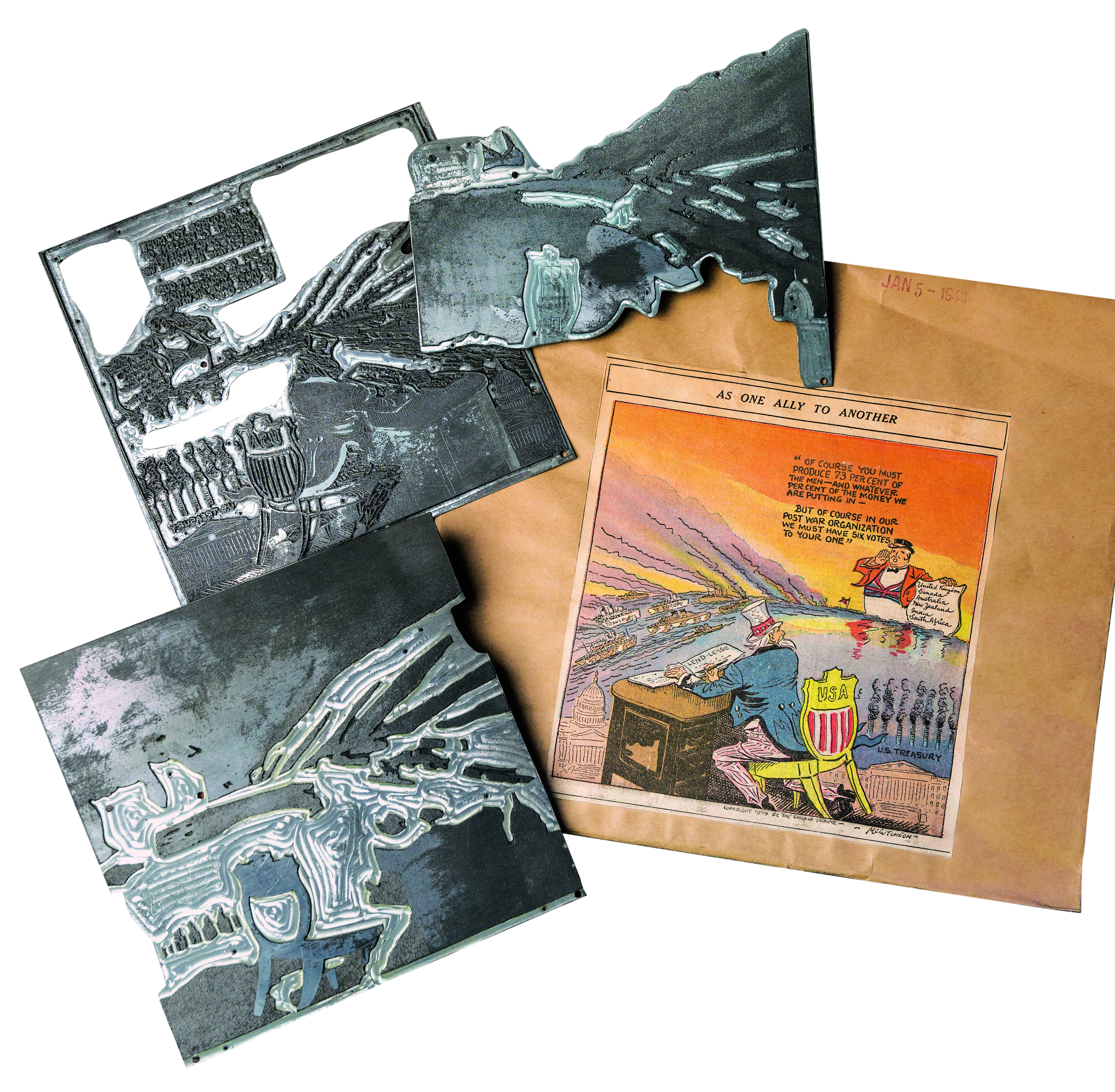
McCormick died in 1955 after a 45-year tenure at the Tribune, but his papers extend back to when the Tribune was run by his grandfather, Joseph Medill. With family records dating back to the 1830s, the massive collection represents almost 120 years of Chicago history. It is so massive that it has been partitioned into some 180 component collections, representing such categories as McCormick’s correspondence(with many famous people of the day) and records from the company’s individual editors and departments. Library staff have been steadily processing the collection since its arrival, and many finding aids are available online.
Georgie Anne Geyer ’56
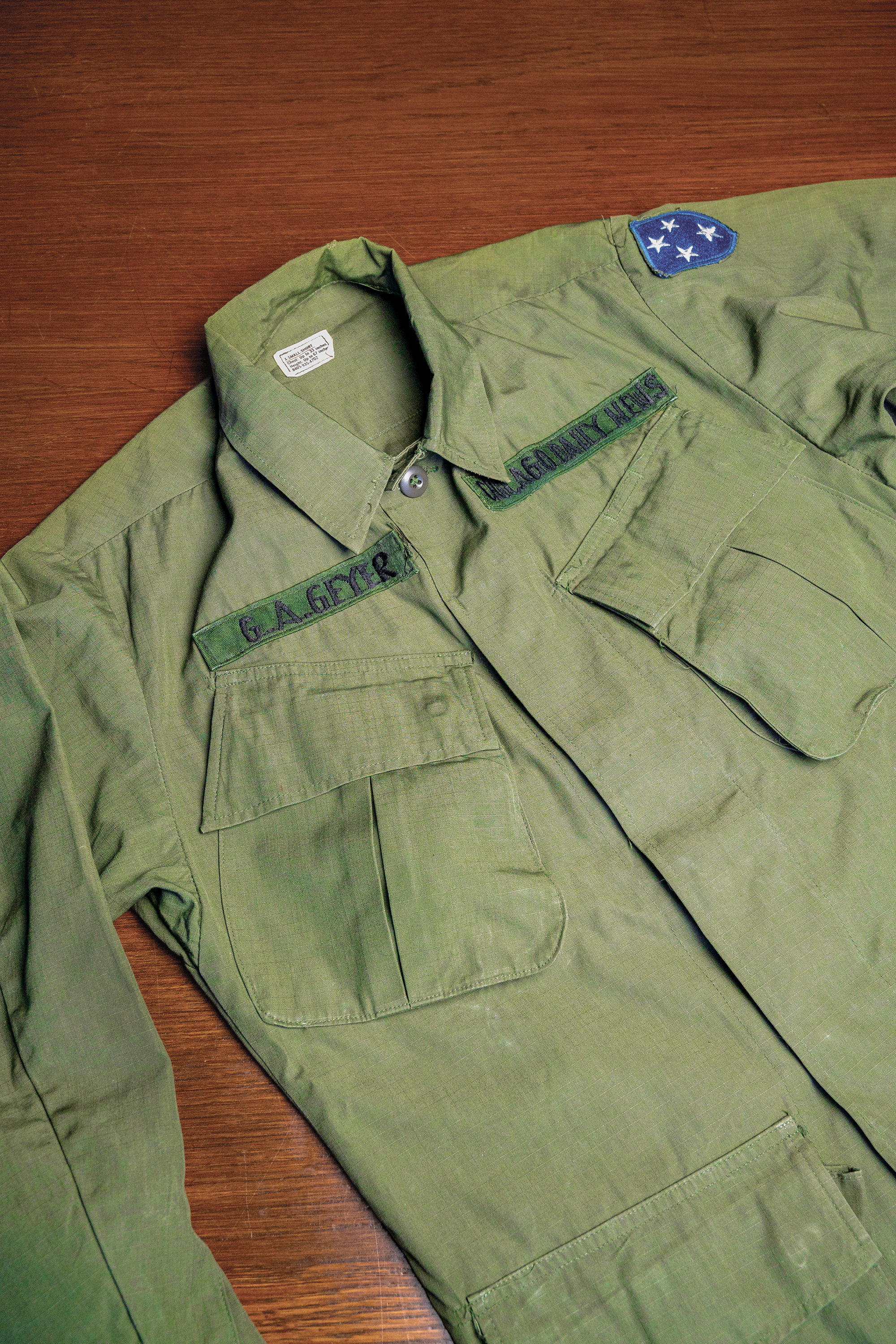
The McCormick papers may represent the Library’s biggest journalism repository, but for Leonard, one of the most personally satisfying is the Georgie Anne Geyer ’56 collection. The storied journalist and columnist cemented her legacy as a Chicago Daily News foreign correspondent in the 1960s, landing an interview with Fidel Castro when few journalists had such access. Leonard made a special effort to win Geyer’s confidence so that she would entrust her papers to University Archives. It remains one of his proudest accomplishments that she deposited 78 boxes of personal and professional papers here before her death in 2019. Highlights of her collection include drafts of stories, recordings, and many of her reporter notebooks.
“She covered Central America before it was a part of daily news coverage; she was covering the periphery of the USSR right before it crumbled; she was interviewing Ayatollah Khomeini in exile before he returned [to Iran],” says Leonard. “She seemed to know before anyone else about pivots in history, and she covered them.”
When he asked her how she did it, she told him, “When you travel a lot around the world and then you come back five years later, you might go into a café or a newsstand where you see little signs that things are different. Then you investigate why.”
She seemed to know before anyone else about pivots in history, and she covered them.”
Patrick Reardon
Leonard is pleased to have the “huge collection” of this still-active journalist, author, and poet. From 1976 to 2009, Reardon was a Chicago Tribune urban affairs writer and columnist specializing in social issues and public policy. He deposits papers after he completes a project, so Leonard expects this collection of drafts and interview notes will continue to grow.
Stanton Cook ’49
This legendary Tribune Company executive oversaw the 1983 move from family business to publicly traded company. In so doing he expanded its news outlets into more markets and brought the company out of financial doldrums. A passionate baseball fan, Cook also managed the company’s purchase of the Chicago Cubs, a move that “protected a valuable source of sports programming” for the company’s TV and radio outlets, according to his 2015 Tribune obituary. Cook’s voluminous 124-box collection includes personal papers, company records, and documentation of Cubs management.
Richard Stolley ’52, ’53 MSJ
After brief stints at his hometown Pekin Daily Times and then the Chicago Sun-Times, Stolley found his home at Life magazine as a writer and editor. He may be best known for securing the Zapruder film of John F. Kennedy’s assassination for Life, beating out competing journalists because he “acted like a gentleman,” according to his 2021 New York Times obituary. In 1974 Stolley became People magazine’s inaugural editor; after eight years there he was named editorial director of all Time Inc. magazines.
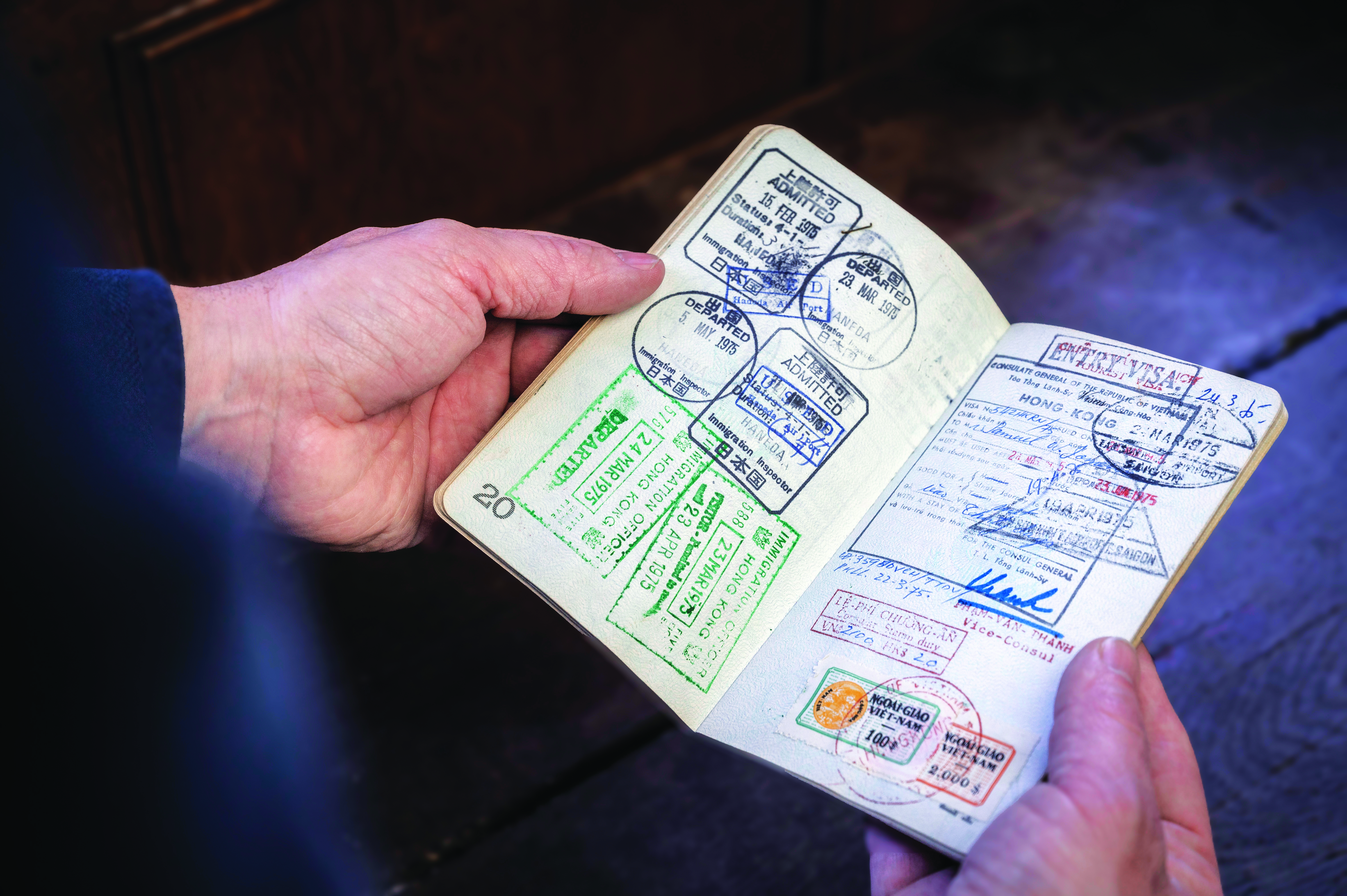
Sam Jameson ’58, ’59 MSJ
After beginning his career as a reporter and editor for the Daily Northwestern, Jameson worked for three years at the US military paper Pacific Stars and Stripes. There he developed a passion for Japanese culture and politics that guided the rest of his career. An expert on Japan, he was the Chicago Tribune’s Tokyo bureau chief for eight years before heading the Los Angeles Times Tokyo bureau until 1996. His collection includes multiple manuscripts of books drafted throughout his life, clippings by and about him (largely from publications outside the US), résumés, and biographical sketches.
Rance Crain ’60
A former Daily Northwestern sports editor, Crain joined his father’s company, Crain Communications, shortly after graduation. He founded and helmed many business-related magazines for the company, including Business Insurance and Crain’s Chicago Business. The majority of his collection consists of notes and research for his columns for Advertising Age and AdAge.com, where he serves as editor in chief.
Eloise Henkel ’44
During the Vietnam War, freelance reporter Henkel spent two years chronicling and photographing the conflict’s effects on American soldiers and Vietnamese citizens. Her collection includes notes and drafts from her field reporting as well as extensive photography documenting Vietnamese cities, soldiers of both armies, and war protests in Washington, DC.
Casey Bukro ’58, ’61 MS
The Chicago Tribune, where Bukro spent most of his professional life, named him its inaugural environment writer—the nation’s first for a major newspaper. He spent 28 months covering the Zion Nuclear Power Station from inside and went on to publish a book on nuclear energy. Author of the Society of Professional Journalists’ first code of ethics, adopted in 1973, he was inducted into the Chicago Journalism Hall of Fame in 2008 and Medill’s Hall of Achievement in 2023.
Mary Dedinsky ’69, ’70 MSJ
Leonard has just begun to receive materials from Dedinsky, who was named the Chicago Sun-Times’ first female managing editor after a successful career as an investigative reporter, editorialist, and director of editorial operations. She is currently the director of the journalism program at Northwestern University in Qatar.
James Rosen ’96
The papers of this former Fox News correspondent cover his own career as a journalist and his extensive reportage on Watergate. Rosen conducted hundreds of interviews with all the major figures of the scandal except Richard Nixon for his book The Strong Man: John Mitchell and the Secrets of Watergate.
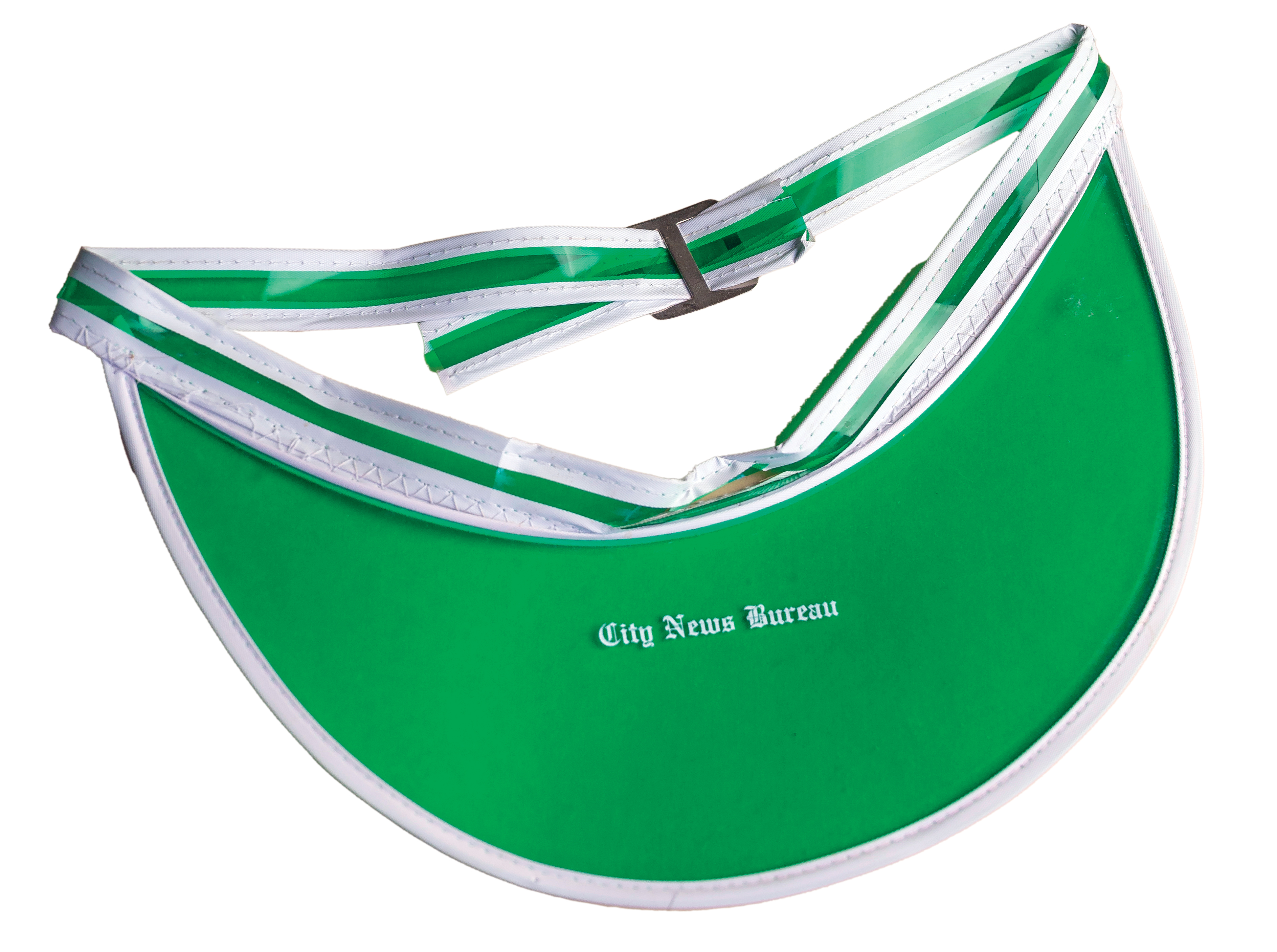
Chuck Remsberg ’58, ’59 MS
While still a Medill student, Remsberg covered two memorable stories. As a Daily Northwestern editor, he broke the story of Sherman Wu, a student depledged from his fraternity because he was Asian (the inspiration for a Pete Seeger protest song). Later, as a graduate student and City News Bureau of Chicago intern, he was the first reporter on the scene of a deadly fire at a West Side elementary school, a tragedy that drew international coverage. Remsberg went on to become a prolific freelance reporter, writing about social issues for many magazines and newspapers. His papers comprise photographs, scrapbooks, correspondence, research notes, manuscripts, clippings, and audio materials.
Howard Tyner ’67 MSJ
After spending the first decade of his career at United Press International as a foreign correspondent in Europe, Tyner joined the Chicago Tribune staff and in 1982 became its Moscow bureau chief. In 1985 he was named the Tribune’s foreign editor, and he went on to serve as associate managing editor for foreign and national news, deputy managing editor, and associate editor for features before becoming the paper’s 19th editor in 1993. During his tenure in that role, the Tribune was awarded six Pulitzer Prizes.
Milan Kubic
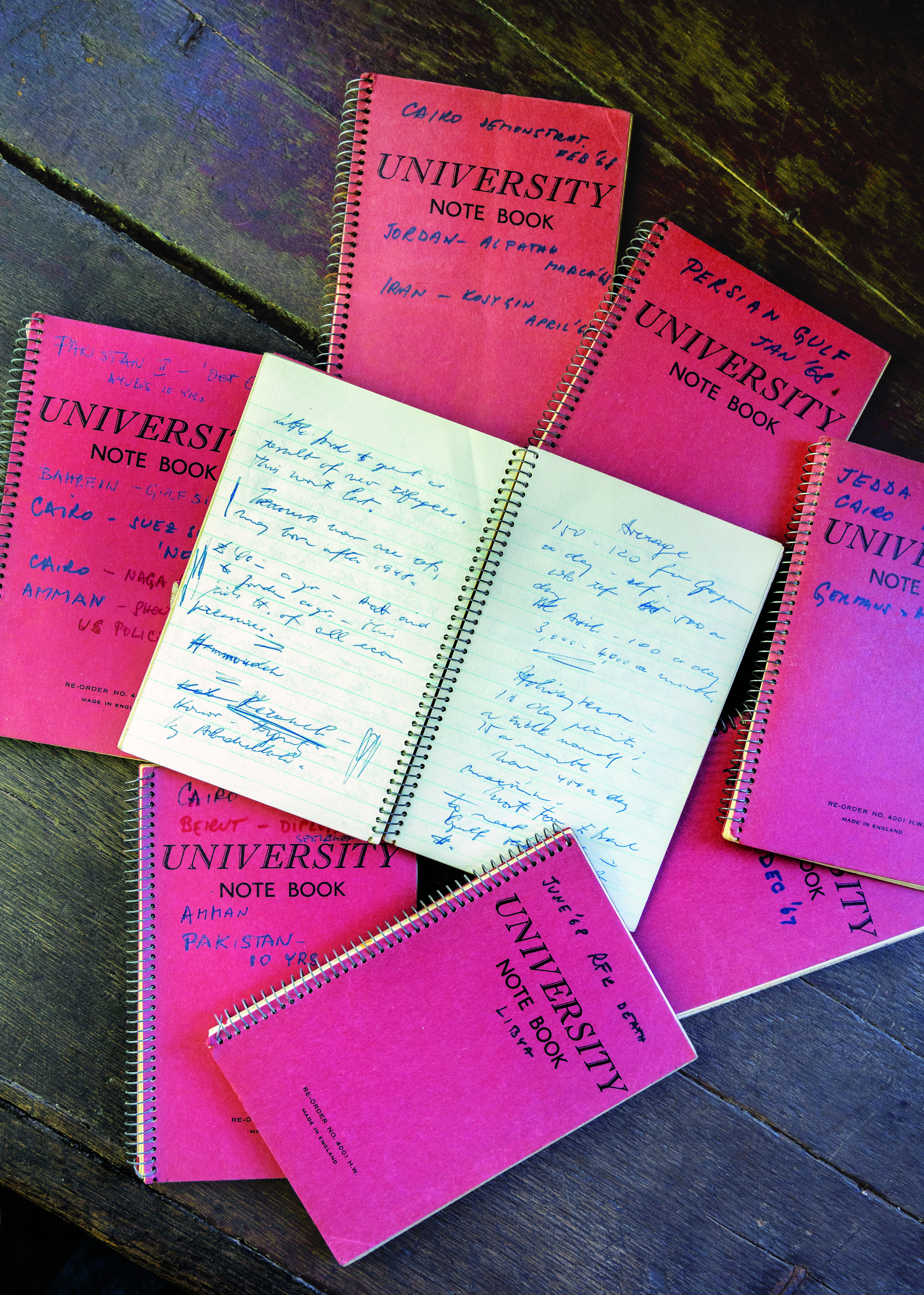
For 30 years, Kubic worked as a journalist for Newsweek magazine. He served as a correspondent at bureaus in Washington, Rio de Janeiro, Beirut, Vienna, Bonn, and other cities, largely reporting on foreign politics and political figures. His 25-box collection includes floppy disks of writings related to the Iran-Contra affair, interview transcripts with prominent political and cultural figures, and correspondence with journalist Ben Bradlee, Senator Robert F. Kennedy, and others.
Robert H. Lefley ’50, ’51 MA
Lefley was the editorial director for Chicago radio station WFMT-FM from 1954 to 1961 and later served as managing editor of publications that would evolve into Chicago magazine. From 1964 to 1969 he was Northwestern’s manager of press relations. In addition to materials from throughout his career, his collection includes recorded author interviews that he conducted for the WFMT program Fiction Review.
Robert McClory ’71
In a long career of writing and reporting for such publications as the Chicago Reader, Chicago magazine, and National Catholic Reporter, McClory wrote about politics, racial conflict, and poverty. Many pieces reflect his background as a Roman Catholic priest and his view of social justice. McClory taught for 20 years on the Medill faculty, retiring in 2003 as professor emeritus. His collection includes teaching materials, professional correspondence, and speech notes.
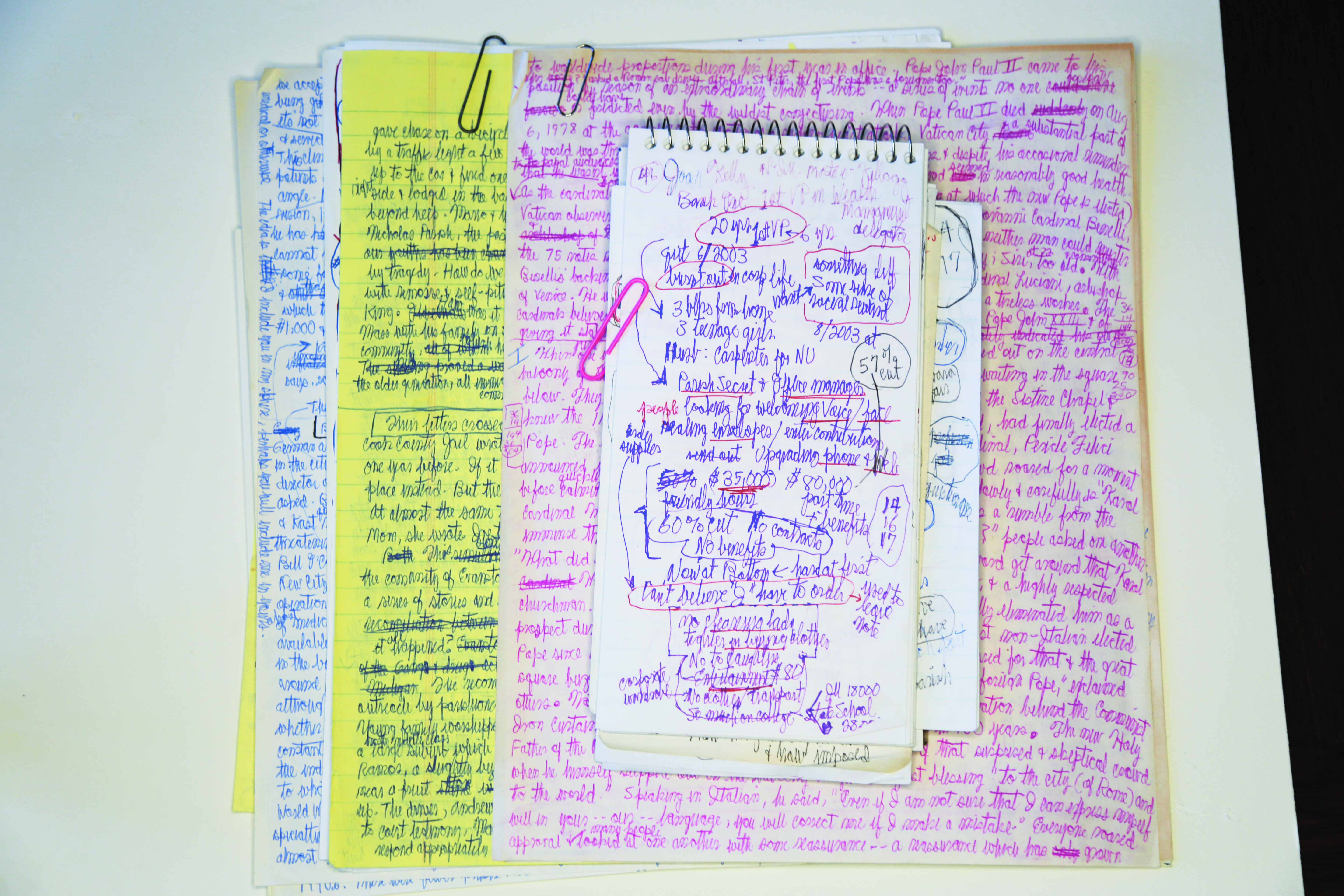
This partial list accounts for collections of print journalists only. University Archives also teems with papers from broadcast journalists, including former NBC White House correspondent Sander Vanocur ’50, NBC anchor John Palmer, original CNN Headline News anchor Bobbie Battista ’74, ESPN producer Willie Weinbaum ’82, ’83 MS, and many others.